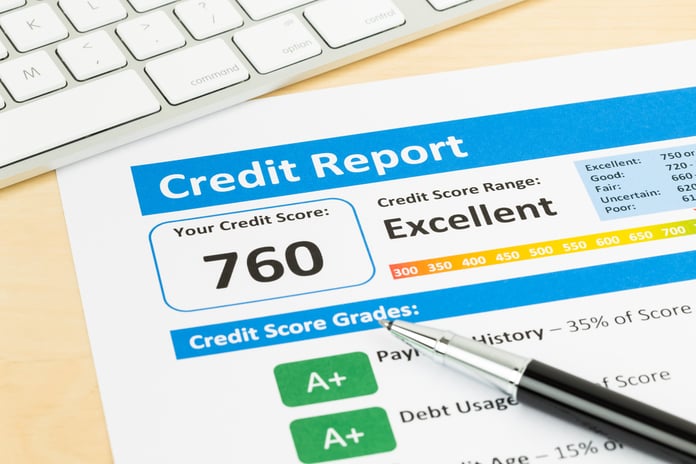A Beginner’s Guide to Understanding Your Credit Report
If you want to become a homeowner someday, start monitoring your credit. The credit score weighs heavily in determining if you’ll be approved for a home loan, what type of home loan you can get, and the interest your loan will accrue. You’ll need to check out your credit report to find your credit score. Here’s how!
credit. The credit score weighs heavily in determining if you’ll be approved for a home loan, what type of home loan you can get, and the interest your loan will accrue. You’ll need to check out your credit report to find your credit score. Here’s how!
How to Request Your Credit Report
Now, it’s easier than ever to request your credit report. Several sites help you get your credit report, including annualcreditreport.com, which allows you to request one official copy of your credit report each year for free. You will have to fill out some basic information about yourself, including your birthday, Social Security Number, and address.
Your credit score will range between 300 and 850. The number represents how responsible a user you have been of credit and the likelihood you can pay back a loan. The higher your score, the better your credit is, and the easier it will be for you to obtain home financing. You’ll also get superior loan terms for interest and down payments.
The Four Parts to Every Credit Report
Three national credit bureaus calculate your credit score: Equifax, Experian, and TransUnion. The report should include a key that guides you through the information. Check this out first so you have a better understanding of your account.
Depending on the credit bureau the report comes from, the credit score and report may be slightly different. This is because different lenders and creditors report to different bureaus. But you can still expect every report to include some of the same info.
Identifying Information
First, your credit report will list some basic information about you, including your name and any aliases you have. This could include times a creditor misspelled your name or a name change if you married. You’ll also see your birthday, your current address, the address of any past residences, your phone numbers, and your SSN. Your employer and previous employers will be listed.
Accounts History
This portion of the report provides more details about your credit accounts, including credit cards and loans. You’ll see the names of your creditors, the corresponding account numbers, and their balances. The report’s payment history includes the status of your account, such as whether it’s past due.
Credit reports are usually updated every 30 days. So, if you’ve opened a new account or made a payment that hasn’t shown up yet, that’s probably why.
Public Records
Ideally, the public records section shouldn’t have anything listed. But if you have bankruptcy, tax liens, or judgments in your past, those will show up here. These items remain on your credit report for seven to ten years. Note that having these on your report doesn’t automatically disqualify you from securing a home loan.
Inquiries
You can also see any people or organizations recently requesting to view your credit report. For example, a credit card company, landlord, or insurer might request access to your credit report. Having too many requests over a short time frame can raise a red flag that you’re taking on too much debt. But what if you’re shopping around to find the best deal? Most reporting agencies will give you a short shopping window where multiple queries for the same type of debt (like an auto loan or home mortgage) will count only as one query.
What to Look for on Your Credit Report
If you see anything that needs to be corrected in your report, report it to the lender or collection agency as quickly as you can. Hopefully, it will be a simple mistake that can be easily remedied.
If you see something like multiple new lines of credit you never applied for or medical debt that isn’t yours, you are probably the victim of identity theft. This can severely damage your credit if you don’t address it immediately. Contact your bank, lender, and the credit bureaus right away. You may also want to freeze your credit as an extra precaution.
Discover Your Lending Options
Start Your Home Search
Preston Guyton
Share this Post
Related Articles
Real Estate Tips
The Power of Follow-Up: Staying in Touch With Your Database
Real Estate Tips
How to Communicate Your Value As A Real Estate Agent
Real Estate Tips
10 Essential Steps to Hiring a Contractor
Real Estate Tips





